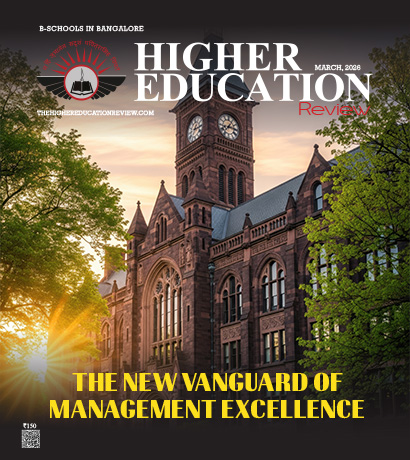The Five -Factor Check List for B-School Aspirants

Management education took root in India in the 1950s. After the establishment of the IITs there was a great demand for managerial talent as industry expanded, and the first IIMs in Calcutta and Ahmadabad were established with the support of MIT and HBS respectively. Soon the brightest young minds from a variety of disciplines indicated their preference for management education, probably attracted by the lucrative jobs awaiting them on acquiring a management degree. Following the establishment of the IIMs, India witnessed an unprecedented growth in this area with the mushrooming of a large number of b-schools seeking to cater to the increasing demand for a management degree. From a mere 100 B-schools in 1988 when AIMS was first established, the AICTE records show more than 3500 approved institutes for MBA at present. This has led to a compromise on standards of education imparted in many of these institutes. There are many relevant points that would help future managers to make the right choice at the right time.
Institutional Excellence
Excellence in management education is achieved by focusing on quality. This is no easy task to achieve for a management institute. It requires rich experience in institution building. An institution that is backed by a management with experience is able to discern the market requirement and respond suitably to it. They put into place robust institutional processes that ensure quality output at various levels. They set into motion an educational program in line with the mission and vision of the institute and ensure that it is efficiently monitored. The objectives are carefully planned and laid out and the outcomes are measured against previously set benchmarks that ensure that the products of the institution are representative of the institution’s brand and reputation in industry and in society.
Pedagogy
A program in management can hardly be compared with postgraduate programs in other disciplines in terms of pedagogy. A good B-school would have a planned curriculum that integrates classroom learning with industrial exposure and skill training, which offers students independent opportunities to carry out projects and events that create an impact at regional and national levels. The high demand for quality required for acceptance at these levels becomes the student’s main guide. An aspirant for a business program should ensure that the institute has a well-designed pedagogy that will ensure the desired results.
Faculty
Faculty is a b-school's greatest asset and is a key driver to the success of any management program. The faculty needs to be qualified and experienced, at both academic and corporate levels. Given the manner in which knowledge processes are evolving, the role of faculty has shifted from tutor to facilitator and this places great demands on the individual teacher’s own capacity to direct students to focus on the what is best among the large and often unwieldy repertoire of resources available today. B-schools committed to quality recognize their responsibility to ensure the currency of knowledge and delivery skills and faculty are regularly sent for training programs in their respective specializations as well as in innovative teaching methods.
Value-based education
In the frantic endeavor to locate b-schools with the best placement records, MBA/PGDM aspirants often overlook the importance of value based business programs. Any b-school of worth must not only have its value orientation defined in its mission and vision statement, but must also create the institutional culture around these. B-schools with a strong and genuine value base are recognized by the industry and recruiters give great importance to this aspect during placement drives. It is not enough that ethics are taught as a separate subject in the curriculum. B-schools who are committed to ethical and social sensitization of students usually have this integrated into student activities, and have dedicated non-academic programs to cultivate these values in students. In the long term, any B-school aspirant will have made a better choice if this aspect of a B-school has been given due consideration.
Infrastructure and learning management systems
Needless to say, all these efforts must be supported by state-of the art infrastructure that matches the requirements of present day teaching –learning methods. Learning management systems should be in place to make the processes of testing and assessment more objective. Learning resources should be able to adequately support faculty and student research. All put together, the right environment and ambience for learning must be created on a 24/7 basis in order to ensure productivity at required levels.
These are the differentiating factors that set b-schools of excellence apart from others. Placements come as a result of achieving success in these areas. Discerning business organizations choose from b-schools of this caliber in order to ensure they get the right kind of candidates for the job. Students who have been nurtured in an educational system that ensures the highest quality in its infrastructure, educational processes, teaching –learning, industrial readiness and value orientation would be a recruiter’s first choice and should, for the same reasons, be the mature choice of any MBA/PGDM aspirant.
About the Author
Dr. Joseph I. Injodey
Honorary Dean, is a Post Graduate from Loyola College Chennai and a PhD from M. G. University, Kottayam. Widely travelled and with 20 years of teaching experience at P.G. Level in Rajagiri College of Social Sciences and Loyola College Chennai, he was a visiting International Scholar at Western Michigan University, Kalamazoo, Michigan State, USA.
Institutional Excellence
Excellence in management education is achieved by focusing on quality. This is no easy task to achieve for a management institute. It requires rich experience in institution building. An institution that is backed by a management with experience is able to discern the market requirement and respond suitably to it. They put into place robust institutional processes that ensure quality output at various levels. They set into motion an educational program in line with the mission and vision of the institute and ensure that it is efficiently monitored. The objectives are carefully planned and laid out and the outcomes are measured against previously set benchmarks that ensure that the products of the institution are representative of the institution’s brand and reputation in industry and in society.
Pedagogy
A program in management can hardly be compared with postgraduate programs in other disciplines in terms of pedagogy. A good B-school would have a planned curriculum that integrates classroom learning with industrial exposure and skill training, which offers students independent opportunities to carry out projects and events that create an impact at regional and national levels. The high demand for quality required for acceptance at these levels becomes the student’s main guide. An aspirant for a business program should ensure that the institute has a well-designed pedagogy that will ensure the desired results.
Faculty
Faculty is a b-school's greatest asset and is a key driver to the success of any management program. The faculty needs to be qualified and experienced, at both academic and corporate levels. Given the manner in which knowledge processes are evolving, the role of faculty has shifted from tutor to facilitator and this places great demands on the individual teacher’s own capacity to direct students to focus on the what is best among the large and often unwieldy repertoire of resources available today. B-schools committed to quality recognize their responsibility to ensure the currency of knowledge and delivery skills and faculty are regularly sent for training programs in their respective specializations as well as in innovative teaching methods.
Value-based education
In the frantic endeavor to locate b-schools with the best placement records, MBA/PGDM aspirants often overlook the importance of value based business programs. Any b-school of worth must not only have its value orientation defined in its mission and vision statement, but must also create the institutional culture around these. B-schools with a strong and genuine value base are recognized by the industry and recruiters give great importance to this aspect during placement drives. It is not enough that ethics are taught as a separate subject in the curriculum. B-schools who are committed to ethical and social sensitization of students usually have this integrated into student activities, and have dedicated non-academic programs to cultivate these values in students. In the long term, any B-school aspirant will have made a better choice if this aspect of a B-school has been given due consideration.
Infrastructure and learning management systems
Needless to say, all these efforts must be supported by state-of the art infrastructure that matches the requirements of present day teaching –learning methods. Learning management systems should be in place to make the processes of testing and assessment more objective. Learning resources should be able to adequately support faculty and student research. All put together, the right environment and ambience for learning must be created on a 24/7 basis in order to ensure productivity at required levels.
These are the differentiating factors that set b-schools of excellence apart from others. Placements come as a result of achieving success in these areas. Discerning business organizations choose from b-schools of this caliber in order to ensure they get the right kind of candidates for the job. Students who have been nurtured in an educational system that ensures the highest quality in its infrastructure, educational processes, teaching –learning, industrial readiness and value orientation would be a recruiter’s first choice and should, for the same reasons, be the mature choice of any MBA/PGDM aspirant.
About the Author
Dr. Joseph I. Injodey
Honorary Dean, is a Post Graduate from Loyola College Chennai and a PhD from M. G. University, Kottayam. Widely travelled and with 20 years of teaching experience at P.G. Level in Rajagiri College of Social Sciences and Loyola College Chennai, he was a visiting International Scholar at Western Michigan University, Kalamazoo, Michigan State, USA.

